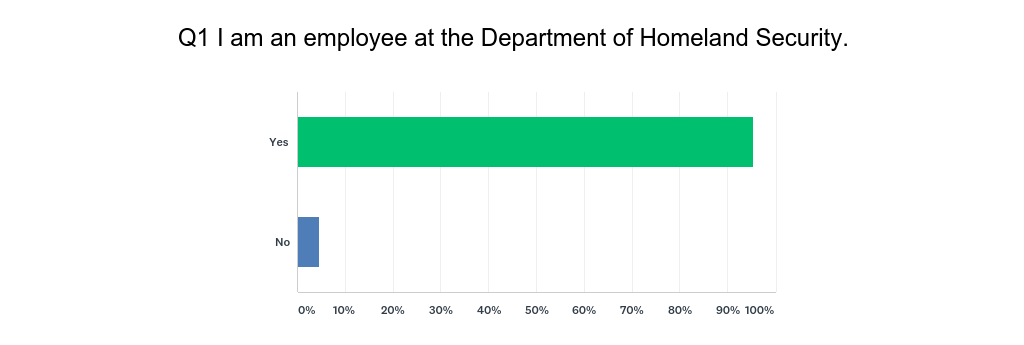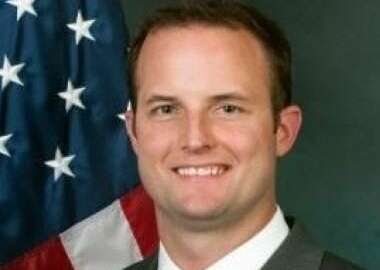
DHS employees say the longer leadership vacancies last the bigger impact they will have
DHS employees have mixed feelings about the recent leadership changes, but one of the main takeaways is the mission and short-term goals will not be impacted.
Federal News Network conducted an online survey of our readers who identified themselves as DHS employees. We received 150 responses out of more than 5,400 emails, about a 3% response rate.
The survey is part of a special report looking at the impact of the leadership changes on DHS employees, morale and mission goals. In part 1 of the report, Federal News Network’s Nicole Ogrysko talked to current and former DHS employees to get their insights about what the leadership changes mean and the impact they may have on the workforce.
Respondents said they worked in headquarters and the components, and 59 percent said they had worked at DHS for more than a decade.
The overall feeling from DHS employees was the sudden upheaval would have both negative and positive impacts.
“I am, in fact, excited. Recent senior management could not think outside the box. It is my hope that a new perspective will ‘overturn’ years of stagnation and inactivity,” wrote one respondent.
Another said the changes were good: “I personally don’t have any concerns. We have so much talent within DHS and change is good and positive. A fresh set of eyes is always positive.”
But there were several that said the leadership vacuum will be detrimental to the department.
Another said, “Too many position changes during a short period and the time it takes for new leaders to establish and act on their priorities.”
And yet another said, “DHS needs continuity within its senior leader positions, so nominations and confirmations need to happen quickly.”
Several respondents commented on the impact to the workforce more than the mission.
A TSA employee wrote, “The lack of continuity and dedication of resources to shifting, unclear, often unattainable goals is undermining DHS’s already tenuous ability to achieve mission — and even programmatic — success. DHS requires consistency of commitment to adequately analyzed, clear, attainable goals.”
Another employee who works at a component said, “Delays in executing long-term protective or operational plans without decision makers who feel free to authorize the plans.”
And an employee with the Immigration and Customs Enforcement directorate wrote, “Each new person who comes in feels they have to make an impact by implementing something new/different. The turnover means a bunch of partially implemented initiatives that essentially wasted valuable time/money.”
Copyright © 2024 Federal News Network. All rights reserved. This website is not intended for users located within the European Economic Area.
Jason Miller is executive editor of Federal News Network and directs news coverage on the people, policy and programs of the federal government.
Follow @jmillerWFED







